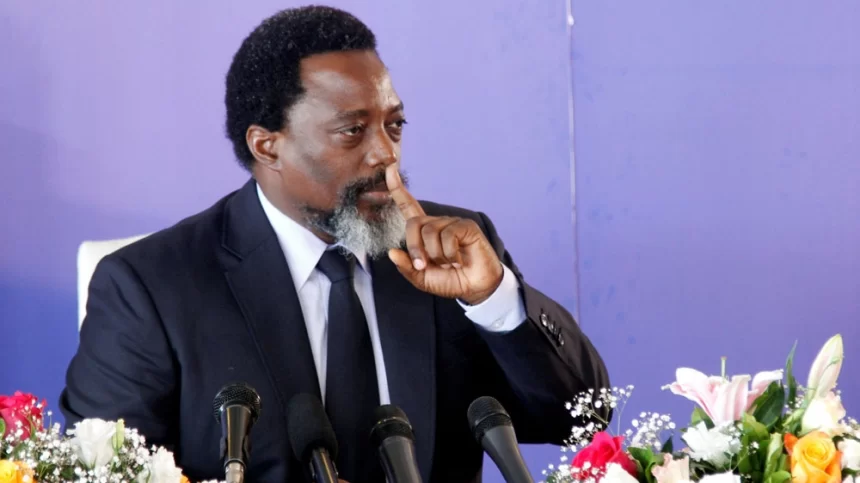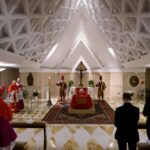The Democratic Republic of Congo has suspended the political party of former President Joseph Kabila and ordered the seizure of his assets, accusing him of aiding M23 rebels linked to Rwanda marking a dramatic escalation in the country’s deepening security and political crisis.
The Democratic Republic of Congo has suspended the political party of former President Joseph Kabila and ordered his assets seized, accusing him and his allies of supporting the M23 rebel group responsible for capturing key eastern cities.
The Interior Ministry announced the suspension of Kabila’s Party for Reconstruction and Democracy (PPRD) late Saturday, citing “acts of support and coordination” with M23 rebels, who are widely believed to be backed by neighboring Rwanda. The Justice Ministry followed up by announcing the freezing of assets belonging to Kabila and other senior party officials, citing alleged “acts amounting to high treason.”
Kabila, who ruled Congo from 2001 to 2019, has not publicly responded to the allegations. He had recently expressed interest in returning to Congo to help resolve the ongoing conflict in the east, where violence continues to displace thousands.
PPRD Secretary Ferdinand Kambere sharply criticized the government’s move, calling it “a flagrant violation” of the country’s constitution and warning of rising political tension. “This is a desperate attempt to silence opposition,” Kambere
The M23 rebels have made sweeping territorial gains since the start of the year, including the capture of major cities near the Rwandan border. Their resurgence has reignited longstanding tensions between Congo and Rwanda and sparked renewed fears of regional destabilization.
The eastern DRC has been the epicenter of conflict for decades, largely fueled by ethnic tensions, the spillover from the 1994 Rwandan genocide, and competition for control of valuable mineral resources, including coltan and cobalt.
Kabila, who took power after the assassination of his father Laurent Kabila, controversially clung to office beyond his constitutional term limit in 2016, triggering mass protests and international condemnation before eventually stepping down in 2019. Since then, he has kept a low profile, living abroad in several African countries.
The government’s latest actions appear to signal an aggressive shift under current President Félix Tshisekedi, who has vowed to clamp down on internal threats and root out support for rebel movements.
While the accusations against Kabila are yet to be substantiated with concrete evidence, the legal and political ramifications are already shaking Congo’s fragile democracy, raising the stakes ahead of any future power plays and regional peace negotiations.







